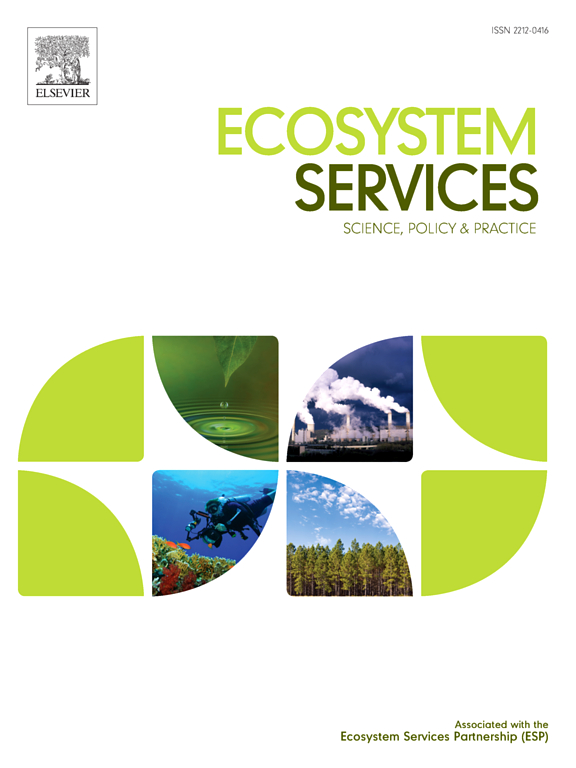Understanding the impact of the war on people-nature relationships in Ukraine
IF 6.6
2区 环境科学与生态学
Q1 ECOLOGY
引用次数: 0
Abstract
This study investigates the impact of the Russian invasion of Ukraine on the relationship between people and nature in three settlements in the Kyiv Region that were occupied by Russian forces and later liberated by the Ukrainian Army. Using semi-structured interviews with local inhabitants, we documented the ecosystem services that people relied on before the war and the changes that occurred after deoccupation. The findings reveal a significant reduction in access to essential ecosystem services, exacerbated by new disservices such as flooding and environmental contamination. The study underscores the vital role of cultural ecosystem services, with many respondents expressing deep emotional and spiritual connections to their natural environment. Despite these challenges, private gardens and urban greenspaces have emerged as crucial elements for post-war recovery, fostering reconnection and psychological healing. Post-war restoration strategies should prioritize not only the rehabilitation of ecosystem services but also the restoration of cultural and spiritual ties between people and nature. A forward-looking, community-inclusive approach to ecological restoration will be critical for Ukraine’s recovery, supporting both environmental sustainability and human resilience.
了解战争对乌克兰人与自然关系的影响
本研究调查了俄罗斯入侵乌克兰对基辅地区三个定居点的人与自然关系的影响,这些定居点被俄罗斯军队占领,后来被乌克兰军队解放。通过对当地居民的半结构化访谈,我们记录了人们在战前依赖的生态系统服务以及被占领后发生的变化。研究结果表明,获得基本生态系统服务的机会显著减少,洪水和环境污染等新的危害加剧了这种情况。该研究强调了文化生态系统服务的重要作用,许多受访者表达了与自然环境的深厚情感和精神联系。尽管面临这些挑战,私人花园和城市绿地已经成为战后恢复的关键要素,促进了重新联系和心理治疗。战后恢复战略不仅应优先考虑恢复生态系统服务,而且应优先考虑恢复人与自然之间的文化和精神联系。前瞻性、社区包容性的生态恢复方法对乌克兰的恢复至关重要,既支持环境的可持续性,又支持人类的复原力。
本文章由计算机程序翻译,如有差异,请以英文原文为准。
求助全文
约1分钟内获得全文
求助全文
来源期刊

Ecosystem Services
ECOLOGYENVIRONMENTAL SCIENCES&-ENVIRONMENTAL SCIENCES
CiteScore
14.90
自引率
7.90%
发文量
109
期刊介绍:
Ecosystem Services is an international, interdisciplinary journal that is associated with the Ecosystem Services Partnership (ESP). The journal is dedicated to exploring the science, policy, and practice related to ecosystem services, which are the various ways in which ecosystems contribute to human well-being, both directly and indirectly.
Ecosystem Services contributes to the broader goal of ensuring that the benefits of ecosystems are recognized, valued, and sustainably managed for the well-being of current and future generations. The journal serves as a platform for scholars, practitioners, policymakers, and other stakeholders to share their findings and insights, fostering collaboration and innovation in the field of ecosystem services.
 求助内容:
求助内容: 应助结果提醒方式:
应助结果提醒方式:


